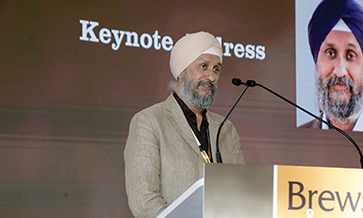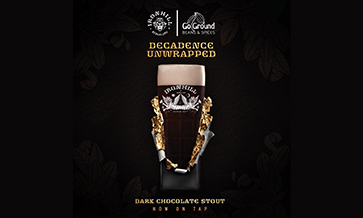Ever since the lockdown on 22nd March, restaurants had already started shutting down their businesses. To prevent the spread of Covid-19 the lockdown, which was initially planned for 21 days, got extended and is further slated to go on till 31st July.
The situation is still not predictable as restaurants remain shut and wine shops are not open to over-the-counter sales. Though some wine shops in some states are open to home deliveries, the sales have reduced to a trickle after the initial surge in orders.
Not all retail shops possess the infrastructure for home deliveries as they do not have the requisite manpower or the necessary transport facilities. This has added to the burden on retailers in terms of cost and time.
Also, home deliveries are more relevant for the premium segment and not for low-end products. Consumers are opting for regular and premium brands. Luxury brands might see a decline due to corporates not spending on entertainment. People at home will prefer value-for-money products and the mid to low segments will continue to do well.
New directives
Due to the initial surge in demand after restrictions were eased, many governments thought of increasing taxes on alcoholic beverages, with the hope of mopping up additional revenue to reduce their financial burden. The surge has, now dwindled and consumers are now feeling the pinch.
We feel that once the other sources of taxes improve, the government should reduce this additional tax burden imposed temporarily on alcoholic beverages.
The alcobev industry has always been demanding that the government allow free movement of alcoholic beverages, including home deliveries and online sales. Going forward one does expect the government to bring in changes in excise laws to promote ease of delivery.
This will, of course, put a strain on the smaller retail outlets and benefit only a few big ones. With home deliveries, big retailers will tend to encroach upon areas of other retailers, and so I do not expect and foresee the government to continue the home delivery option for long – but one will have to wait and watch.
The call for ‘Atmanirbhar Bharat’ and focus on ‘Vocal for Local’ will have an effect on the supply of imported products. However, I do not see this as a business risk for the Indian wine industry, as this would encourage people to drink more of domestic wine!
As a business strategy companies are targeting the end consumers through online sales, by hiring influencers to conduct online marketing and training sessions to promote their brands along with the category.
Online media also help industry professionals such as bartenders, mixologists and sommeliers keep working in these troubled times with the help and support of the producers.
In turn this also gives the producers an opportunity to engage with consumers directly, keeping their brands on the top of their minds.
Receptive govt.
The disruption has not majorly affected the production of wines, as production is an annual activity. Fortunately, 70% of the harvest and crushing was done prior to the lockdown. The state governments were also supportive here, and did not stop the production of wineries during the lockdown.
The pricing of the products will be affected due to the disruption. Since sales volumes have fallen drastically there will have to be a price correction to compensate for revenue. So production is not the concern, it is the sales that is going to be a bone of contention.
Apart from that the government has already extended financial help through the banks, especially for the micro, small and medium enterprise segment, which should help companies tide over the crisis.
The Maharashtra government has already extended the deadline for the payment of license fees. But we hope the government will not increase taxation on wines as there is already internal pressure among manufacturers to increase prices to offset the loss due to the drop in volumes.
If that happens, there will be a cascading effect on the retail prices and the consumers will be forced to opt for cheaper alternatives. All in all, we feel that the Maharashtra government is pretty receptive and positive in terms of hearing out the issues of the industry.
Consumer trends
One is also curious to see how consumers react after the lockdown and reopening of restaurants; whether will they go back to their old ways of socialising or stay confined to their homes till a permanent solution is found.
Till then, I guess, its consumption at home. Ready-to-drink offerings, along with cocktail mixers, will find their way to the retail stores and should be readily accepted by consumers.
Cocktail mixers could be a good opportunity for manufacturers to extend their product lines. These can be sold through general stores, as they’re non-alcoholic, and then mixed with the alcoholic beverages at home.
I think the pandemic is a temporary phase. We need to be united to face the current crisis, which includes supporting others in your supply chain, employees, industry, community, and local government.
Going forward, cutting down on unnecessary travel and working from remote locations is another factor that companies will have to address.
Be prepared for emergencies. Going forward the best way would be to have an emergency fund, which will help you to tide over any situation. Being debt-free would help immensely, as many companies have lost their income but certain expenses like interest continue to be a burden in such times.













